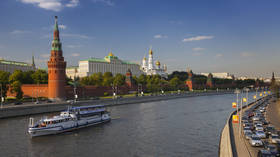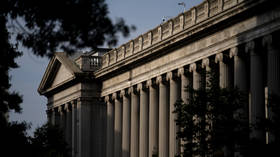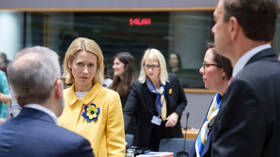EU makes new attempt to seize frozen Russian money

European Union leaders have been discussing plans to impose a windfall tax on profits generated by more than €200 billion ($217 billion) of frozen Russian central bank assets to aid Ukraine’s reconstruction, according to Bloomberg.
People familiar with the matter told the outlet that during a summit in Brussels on Thursday, the leaders decided to explore the option, despite a range of unresolved issues on how to use the sanctioned funds.
The EU and its allies have frozen hundreds of billions of euros of Russian central bank holdings as part of its sanctions policy, which are expected to generate around €3 billion in interest. Over half of those assets are reportedly in cash and deposits, while a “substantial amount” of the remainder is in securities.
The windfall option was the least problematic among other ideas explored, Bloomberg reported, adding however that there were legal risks that it could eventually be challenged in court. “Some argue that the interest and profits generated from the funds stem from sanctioned assets that ultimately belong to Russia,” the outlet noted.
Lawmakers have been warning that the prospect of taxing and seizing the windfall profits could be very complicated from a legal standpoint. Several leaders at the summit have also voiced such concerns, sources told Bloomberg. They recalled that the European Central Bank earlier warned that using the proceeds from the assets could make official reserve holders turn their back on the euro.
A previously considered option to set up an entity to invest the funds and use the proceeds for Ukraine’s reconstruction was also found to be too complex and legally dubious. Officials have concluded that seizing the assets outright is also not possible.
Commenting on the possible seizure of frozen Russian funds, German Chancellor Olaf Scholz said on Friday: “It’s all terribly complicated, and no one now knows what is even possible and how.”
According to Bloomberg, the EU and the US have been in talks about the plans and the Biden administration has been informed of their progress. Discussions will reportedly continue in the coming days and weeks.
Moscow has repeatedly described any seizure of its assets by Western governments as theft and illegal under international law.
For more stories on economy & finance visit RT's business section














